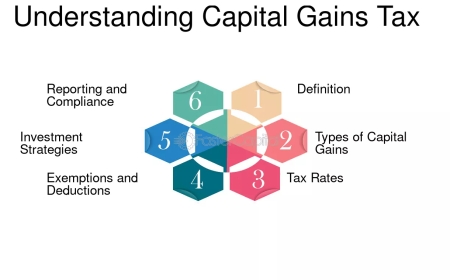Tips to Improve Your Credit Score Quickly

Having a good credit score is essential for financial health and stability. It not only determines your eligibility for loans and credit cards but also influences the interest rates you're offered. A higher credit score can save you thousands of dollars in interest over the life of a loan. If you're looking to improve your credit score quickly, here are some actionable tips and strategies to help you achieve your goal.
The first step to improving your credit score is to check your credit report for errors. You're entitled to a free credit report from each of the three major credit reporting agencies (Equifax, Experian, and TransUnion) once a year. Review your report carefully and dispute any inaccuracies you find. This can help improve your credit score quickly, as errors on your report can be dragging down your score.
Another key factor in determining your credit score is your payment history. Making on-time payments is crucial, as late payments can significantly lower your score. Set up payment reminders or automate your payments to ensure you never miss a payment. You can also consider making multiple payments per month to reduce your credit utilization ratio and improve your score.
Reducing your debt is also essential for improving your credit score. High levels of debt can negatively impact your score, so focus on paying down your balances as quickly as possible. Consider consolidating your debt into a single loan with a lower interest rate, or using the snowball method to pay off smaller balances first.
In addition to reducing your debt, you should also aim to keep your credit utilization ratio low. This is the percentage of your available credit that you're using, and it's calculated by dividing your total credit card balances by your total credit limits. Aim to keep this ratio below 30%, and ideally below 10%. You can achieve this by paying down your balances, or by requesting a credit limit increase.
Another strategy for improving your credit score is to avoid applying for too much credit at once. Each application can result in a hard inquiry on your credit report, which can temporarily lower your score. Instead, space out your applications over time, and only apply for credit when you need it.
Finally, consider working with a credit counselor or financial advisor to help you improve your credit score. They can provide personalized guidance and support to help you achieve your financial goals. With the right strategies and a bit of discipline, you can improve your credit score quickly and enjoy the benefits of better financial health.
To further enhance your credit score, it's also beneficial to maintain a long credit history. This means avoiding the closure of old accounts, as this can negatively impact your score. Instead, keep your old accounts open and use them sparingly to maintain a positive credit history.
Monitoring your credit score regularly is also crucial. You can use free online tools or services to track your score and receive alerts when there are changes. This will help you stay on top of your credit health and make adjustments as needed.
By following these tips and maintaining good credit habits, you can significantly improve your credit score over time. Remember, improving your credit score is a marathon, not a sprint. It requires patience, discipline, and a long-term commitment to financial health. With persistence and the right strategies, you can achieve a better credit score and enjoy the financial benefits that come with it.
It's worth noting that different credit scoring models may weigh factors differently. For instance, some models may place more emphasis on credit utilization, while others may focus more on payment history. Understanding these nuances can help you tailor your approach to improving your credit score.
Additionally, being aware of the factors that can negatively impact your credit score can help you avoid common pitfalls. For example, avoiding collections by paying bills on time and communicating with creditors if you're having trouble making payments can prevent significant damage to your score.
Lastly, maintaining a diverse mix of credit types can also contribute to a healthier credit score. This includes having a mix of credit cards, loans, and possibly a mortgage. However, it's essential to manage this mix responsibly and not overextend yourself.




















